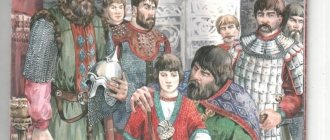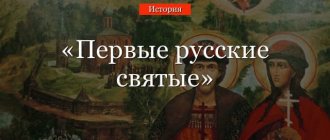Name of Russia
– In recent years, Alexander Nevsky has become increasingly popular in our society. Russian President Vladimir Putin signed a decree to celebrate the 800th anniversary of the birth of the Grand Duke in 2021. What is causing this interest today?
– Interest in his personality was not created by the authorities. And the connection between the theme of Nevsky and patriotism was also not established by the authorities. In all eras, the state often and willingly turned to the historical memory of Alexander Nevsky. In the chronicles, reports about the prince are quite fragmentary, but they highlight in his character such traits as masculinity, determination, and the ability to insist on his own point of view, even when most people do not perceive it. On the other hand, there are reports that he was a tough and sometimes cruel person, who executed those whom he considered traitors. And today all these traits as a leader of state are in demand by our society. Therefore, the image of Alexander Nevsky finds its expression in modern culture. There is plenty of evidence for this. It was he who the Russians chose as the winner of the “Name of Russia” project in 2008, and the film “Alexander. Battle of the Neva".
Doctor of Historical Sciences, Professor of St. Petersburg State University Roman Sokolov believes that the image of Alexander Nevsky will live in Russian history for centuries. Photo: Pavel Vorozhtsov.
– Why did the personality of Alexander Nevsky not lose its significance for the people in the Soviet Union? After all, he was of princely origin, revered by the church and was closely connected with the overthrown Romanov dynasty.
– For these reasons, after 1917 and until 1937, Alexander Nevsky found himself in disgrace, and the shrine with his relics was confiscated in favor of the Hermitage. But when the idea of a world revolution collapsed, the Soviet government turned to the patriotic theme and began to return its former symbols. Sergei Eisenstein’s film “Alexander Nevsky” was released , and this greatly stimulated interest in the personality of the prince. But the director had to reckon with what the authorities demanded of him. According to the original script, the film should have ended not with the scene of Alexander Nevsky's triumphant entry into Pskov, but with his visit to the Golden Horde and subsequent death from poisoning. This scene was cut thanks to the personal intervention of Joseph Stalin , who believed that “such a good prince cannot die.” This suggests that the return of the image of Alexander Nevsky to the new ideological system was not accidental. Here there is a connection with the Peter the Great era: if for Peter I the most important thing in the prince’s personality was his confrontation with the Swedes, then in Soviet times his confrontation with the Germans acquired the greatest significance. That is why this episode was taken as the basis for the film. A logical continuation of this policy was the creation of the Order of Alexander Nevsky during the Great Patriotic War, which depicted actor Nikolai Cherkasov , who played the prince in Eisenstein’s film.
People's hero
– What happened to the image of the Grand Duke after the collapse of the USSR?
“He became even more revered. In the early 90s, many former heroes of the Soviet period were forgotten. But Alexander Nevsky in this case turned out to be in demand, because this image was least associated with the socialist system. And in this regard, turning to its historical appearance turned out to be more relevant. The return of the Russian Church to society also played a major role in this process. In many cities, churches and chapels began to be erected in honor of the holy prince, and in 2002 in St. Petersburg, on the eve of the 300th anniversary of the city, a monument to Alexander Nevsky was erected. Now a memorial zone is being created on Lake Peipsi, where the Grand Duke won his famous victory.
– What role does the memory of Alexander Nevsky play in patriotic education?
– If you look at what is happening in the world now, the image of Alexander Nevsky is perfectly suited for educating our youth: the heroic prince who fought enemies for the sake of the Russian state is becoming an example for an increasing number of people, and not only patriots. Alexander Nevsky united the Russian lands and the numerous peoples who inhabited them to fight the common enemy in the West and made a lot of diplomatic efforts to maintain good relations with the East. Being a wise ruler, he protected North-Eastern Rus' for several centuries from threats from Europeans and the expansion of Catholicism, and the raids of the khans of the Golden Horde during his reign were reduced to a minimum. Modern life is very similar to this medieval plot: young people see this and draw certain parallels. And here it is important not to repeat the mistakes of the past. We all know: after the death of Alexander Nevsky, an internecine war began between the appanage princes for the Vladimir throne. I hope our society will not allow this to happen.
BY THE WAY
Soon after his death, Alexander Nevsky began to be venerated as a local saint in Vladimir (at that time this city was the capital of the Russian lands). In 1380, when the Battle of Kulikovo took place, the Grand Duke was glorified at the level of the Vladimir diocese. A legend arose that he, along with other Russian saints, helped Dmitry Donskoy on the battlefield. And at the state level, Alexander Nevsky began to be revered during the time of Ivan IV the Terrible : he was glorified as a saint at the Church Council in 1547.
Significant changes in the historical memory of Alexander Nevsky occurred in the era of Peter I the Great . The main event of his reign was the Northern War with Sweden. While conquering lands from the Swedes, the emperor realized that his predecessor was Alexander Nevsky, who, like Peter the Great, fought on the banks of the Neva with the same enemy. Therefore, after the end of the Northern War, the relics of Alexander Nevsky were transferred from Vladimir to St. Petersburg, so that the Grand Duke would remain on the banks of the Neva, consecrating the activities of Peter and the new Russian capital. This happened on August 30, 1724 - exactly three years before this event, the Peace of Nystadt was signed with Sweden. The coincidence of dates was deliberate - so that the secular holiday acquired the character of a church holiday and was especially revered by the people.










